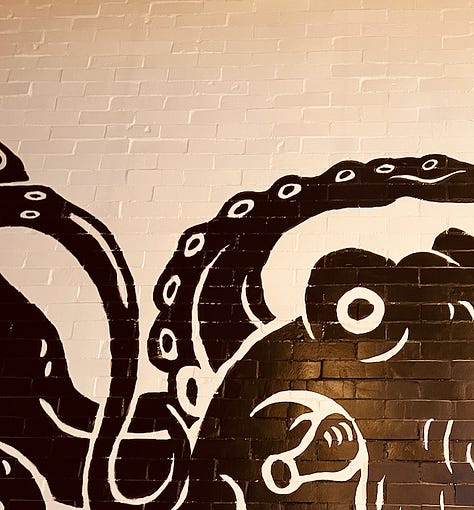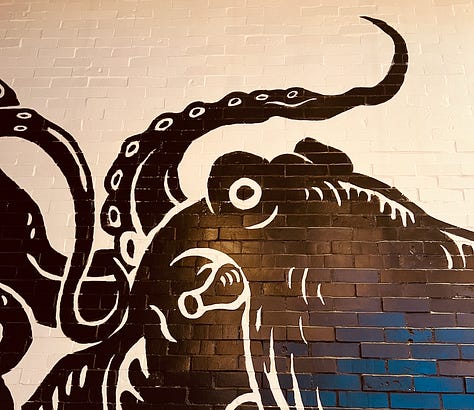


I love language. I love it the way one would love gemstones, or handbags, or birds, or astrology. I find beauty in nomenclature, metaphor, symbolism, euphony—loving language allows me to savor the essence of everything.
I love what language can do and how, as a writer, messing with it is like molding clay or pushing thick paint across a canvas. It is awe-inspiring, an ocean, and just as mysterious. Language has power. It is everywhere too—within, between, and among us—and is inextricably linked to what and how deeply we feel. We can fall in love through language, for example. We name with it, pray with it. We query the insensate. We confess. We heal. We scratch it onto paper and send it. We protect, lock, save, and cherish it. We print, shout, record, rap, and sing it. Rhyme it. Laugh about it. Pattern it. Edit it. Mangle it. Coo it. Whisper it. Make wishes in it, promises through it. It gives us the chills, moves us to weep, turns us on, makes us proud.
But language is also a weapon. A spear, a poison, a knife, a gun. We use it to break up, to break apart. We shame, rile, incite, invalidate, lie, and manipulate with it. We stoke fear and divide with it. Hate with it. Commit crimes through it. Stir chaos. Obfuscate. Threaten. Terrorize.
This is deeply human, the range of what we can do with language. But what we will do is a choice. What’s useful about this distinction is that it begins to put some psychological space between language and us, when oftentimes the two seem fused.
All language is, in fact, a craft, and our use of it, a practice. Each of us gets to decide how we’re going to play our instrument.
This idea occurred to me just this weekend. My niece, an alto sax player, was in Vegas for the Essential Ellington regional high school jazz festival. Together we attended the final concert showcasing the professional musicians who mentored and taught masterclasses all weekend. Before they performed a selection of Ellington arrangements (including “Big Fat Alice’s Blues” and “Cotton Tail”) each person on stage spoke a few words of encouragement to the young musicians. When it was his turn, clarinetist and saxophonist Victor Goines, who has performed with the Jazz at Lincoln Center Orchestra since 1993, told the students to become fluent in the language of jazz. Listen to each other, he said. Listen to jazz. Study the greats. Play with intensity, even when you play softly.
Perhaps because I was already composing a draft of this piece—or because I was surrounded by hard-working, talented kids aspiring to be professional musicians too, dedicated to their craft already—Goines words did not sound like niceties or platitudes. They landed. Inspired. There was no disconnect, disbelief, or discontent between what he said and what he believed and felt.
The tricky thing is that you can be highly skilled, masterful even, at stringing together words, yet completely oblivious (or willfully ignorant) of your interior world. You can be a mess and a poet! Or a politician! And yet each of us, regardless of occupation, can develop our emotional literacy—or the ability to label what we feel, and the intensity of those feelings, with a high degree of specificity.
You can feel peaceful, for instance, or, you might feel thoughtful, content, trusting, nurturing, or serene. You can feel powerful, or you can feel proud, confident, successful, valuable, important, discerning. You might be mad, or you might be hurt, irritated, frustrated, disappointed, envious. Joyful, or creative, excited, enthusiastic, optimistic. Sad, or remorseful, isolated, lonely, tired, inferior. All different notes.
If you are curious to build your emotional literacy as a component of your overall EQ, here’s two exercises to try:
Pause for a moment and turn your attention inward: what do you feel right now? Listen for the complexity—it’s rarely a single emotion, and it might show up as physical sensations, too. Is your heart aching, or your jaw clenched, or your brow furrowed? Are there notes of sadness? Or more brightness? How loud is it? How intense? How is it shifting or evolving as you pay attention? Assign some words to what you feel.
Go to a coffee shop, get a cup, and sit and observe for a half an hour. You can listen to your internal self, like in the exercise above, riding the wave for longer stretches of time. Or, notice what’s around you and what you might sense others feeling. The goal isn’t to be “right,” as if on a game show, but rather to improvise. Notice what you see, or hear, or intuit; is it gestures, touches, glances, expressions, sounds, stances? The interstitial spaces in between? What’s absent?




